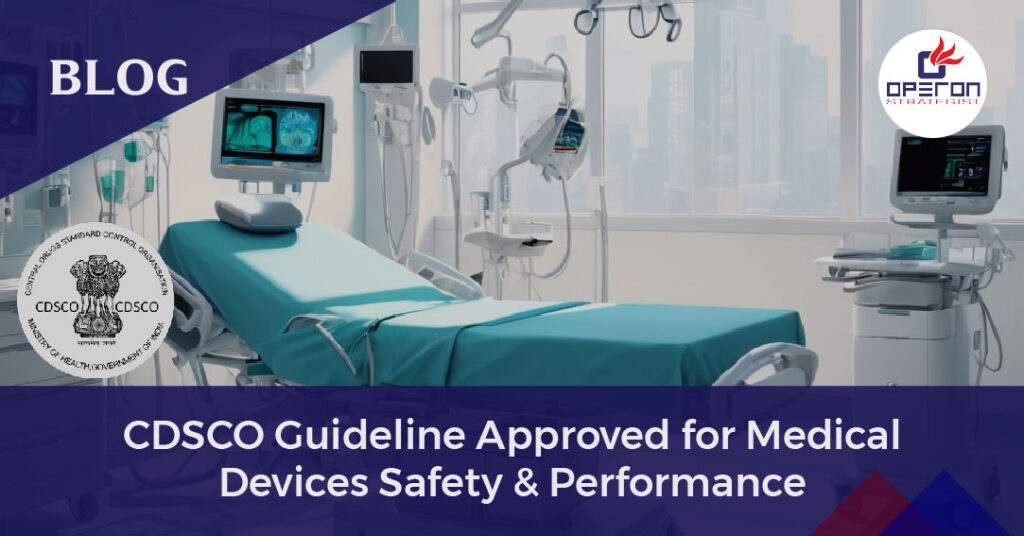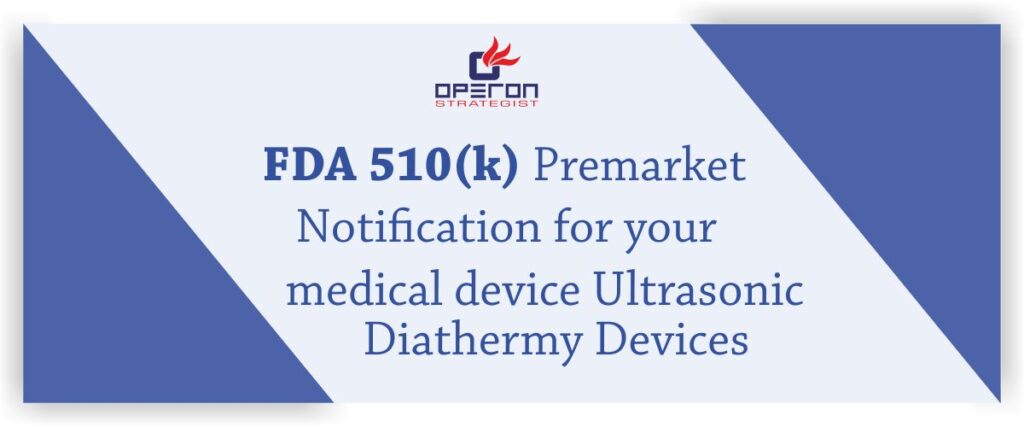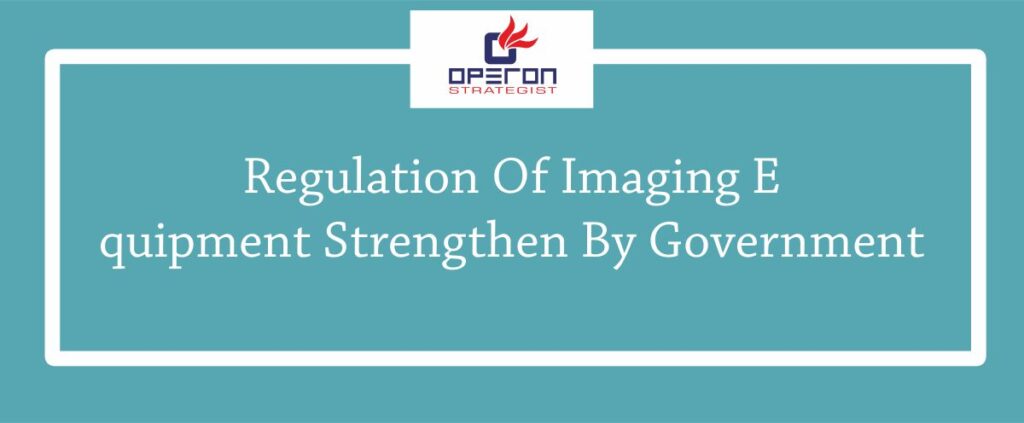CDSCO’s Instructions for Medical Device Safety and Performance:
CDSCO guidelines have been accepted by the Central Drugs Standard Control Organization (CDSCO), which is the Central Drug Authority in charge of carrying out the tasks entrusted to the Central Government under the Drugs and Cosmetics Act. One of CDSCO’s primary functions is to approve new pharmaceuticals for the country. The CDSCO recommendations were approved in March 2018 under the terms of the Medical Devices Rules, 2017 on Essential Principles for the Safety and Performance of Medical Devices CDSCO.
According to CDSCO guidelines, if a person or company wants to import devices, they must apply for a CDSCO import license, and if they want to produce medical devices, they must get a CDSCO manufacturing license. The licensing process requires accurate documentation. Recently, CDSCO released instructions for the mandatory registration of medical devices, thus one needs to consult with the medical devices consultant to speed up the registration procedure with CDSCO.
CDSCO’s Guidance on Medical Device Regulation in India Under MDR 2017:
Looking For a Medical Device Regulatory Consultant?
Let’s have a word about your next project
The new medical device rule “MDR 2017, India” went into effect in January 2018. In accordance with this, the CDSCO (Central Drug Standard Control Organization) has recently released guidance papers, CDSCO guideline reports, and other important updates to provide unalterable guidance for use in the manufacturing and registration of medical devices intended for sale in India. CDSCO has now produced a new draft guideline paper that simply summarizes the important principles for the safety and production of various medical devices (MDs) based on MDR 2017 rule 6.
Normally, three tiers of standards are employed to meet the key principles of safety and performance for medical equipment. These must be assessed as a whole, namely the basic standard, group standard, and product standard. Basic standards specify fundamental concepts and principles with regard to general safety and are applicable to a wide range of products, whereas group standards consist of features applicable to families of comparable products that make as many references to basic standards as feasible. Finally, product standards specify the necessary safety and performance of specific items, including as many references to basic and group standards as possible.
Key Principles of Medical Device Regulation in India
It is important to note that IVD medical devices are separate from medical devices under the new rule, despite the fact that each type is classified as class A, class B, class C, or class D. Some fundamental principles have been proclaimed for all MDs, including IVDs, and some for MDs other than IVDs, while others are primarily for IVDs.
Important principles for all types of MDs include the fact that they should be designed and manufactured in such a way that they work as intended by the user while maintaining clinical conditions and patient safety. Every medical device requires clinical evidence appropriate for its intended use and category, proving that the device complies with the relevant provisions of the essential principles.
As per CDSCO Guideline Imminent to the Product Standards of MDS Care Should Be Taken During Manufacturing Keeping the Following Aspects in Mind i.e.
- Chemical, physical and biological properties.
- Infection and microbial contamination.
- MDs incorporating materials of biological origin.
- Environmental properties
- Performance evaluation
- Protection against radiation
- MDs that incorporate software and standalone medical device software
- Active devices
- Protection against mechanical and thermal risks
- Performance evaluation including analytical performance and, where suitable, clinical performance.
For IVD medical devices above points still, hold along with some additions related to the use of reagents or bimolecular. For new IVDs, clinical evaluation studies using specimens from human subjects should be carried out according to the CDSCO guideline.
Our experienced team of medical device regulatory consultants provides guidance for the CDSCO medical device registration process as per the guidelines. Also, provides medical device QMS services with ISO 13485 certification and 21 CFR part 820. For any query on this, you can contact us.
India’s Medical Device Registration Requirements
In India, medical device registration needs an application to be submitted to the Central Drugs Standard Control Organization (CDSCO), which must include technical documentation, clinical data (if applicable), and verification of conformity with ISO 13485 or equivalent quality management standards. Labeling must meet regulatory requirements, and overseas manufacturers must use a local authorized agency. Fees vary depending on the gadget classification, and post-market surveillance measures are required.
Trust Operon Strategist to Align Your Medical Device’s Safety and Performance With CDSCO:
Elevate your medical device goals with Operon Strategist, your go-to regulatory approvals advisor around the world. We give consultation on CDSCO, FDA510(k), and CE Marking, allowing you to focus on innovation.
FAQ
Where to Apply for a Medical Device Import License?
The licensing is regulated by the Ministry of Health and Family Welfare in the central government. The ministry has verified the CDSCO registration online portal through which the import license has to be made. The application is made to the central licensing authority using Form MD-14. The applicant should also submit some other documents along with the application Form for verification. Firstly the application must have a cover letter in a proper format having proper details for the application. The applicant needs to submit a valid manufacturer license of an Indian agent for medical devices. This is an important condition for filling out an application.
Which License Is Required to Sell Medical Devices in India?
Before introducing a new medical device into the Indian market, the manufacturer must follow specific requirements. If a single individual wants to import a new medical device, the manufacturer’s license is required. The Central Drugs Standard Control Organization, or CDSCO, is a regulatory organization for the Indian medical device industry that operates under the provisions of the Drugs and Cosmetics Acts of 1940 and 1945. CDSCO is the national regulating agency for India’s medical device and pharmaceutical industry. It is the licensing authority that licenses all new medical device imports into India. The Indian CDSCO is administered and governed by the Directorate General of Health Services, which falls under the Ministry of Health and Family Wealth Government of India. The CDSCO regulations are responsible for the registration and sale of notified medical devices in India.
How to Get a Medical Device Registered in India?
To launch a medical device, the manufacturer has to adhere to numerous norms set by way of the countrywide regulatory bodies of India. The number one regulatory framework for medical devices in India is the Central Drugs Trendy Control Organization (CDSCO). The applications for all elegance of scientific gadgets are made to the important licensing Authority (CLA) in which the Drug Controller General of India (DCGI) takes obligation for the approval of manufacturing, registration, import, and sale of medical devices in India. The medical devices might also or won’t want to be registered before the sale. While there may be no want for registration, the producer must gain a no-objection certificate (NOC) from the DCGI before releasing the product inside the marketplace. Whilst the medical device to be launched is imported, it has a fixed number of issued steps to be observed like filling out a registration form at the side of the fees. The form will include the applicant’s and manufacturer’s details, product facts, the regulatory fame of the product, info on good manufacturing practices included, and publish-marketing surveillance at the side of an assignment shape. The retailers, stockiest, and importers shall also gain the respective sale licenses from the national Licensing government (SLA). The National Licensing Authority is responsible for the control and enforcement of regulations related to the sale, stock, and providing on the market of medical devices in India.
Does Medical Device Import Require a License From the Indian FDA?
Yes. Under the provision of the Drugs and Cosmetic Act 1940, CDSCO registration and import license are required to import Medical Devices in India. For the introduction of medical devices in the Indian market, the Manufacturers have to obey various norms set by national regulatory bodies of India. The main regulatory body for medical devices in India is the Central Drugs Standard Control Organization (CDSCO). The Application for all classes of medical devices as per CDSCO guidelines are submitted to the Central Licensing Authority, where the (DCGI) Drug Controller General of India takes the responsibility for approval of Manufacturing, Registration, Import and Sale of Medical Devices in India. When the Medical Device is released to be imported it has some issued steps to be followed. Only those medical devices require import licenses which are listed in Notified medical devices by CDSCO.



